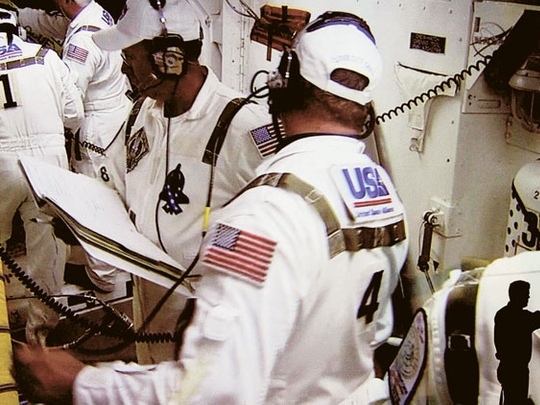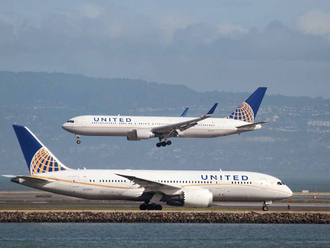
Houston: The end of the space shuttle programme is hitting its Florida launch home in the pocketbook with some areas practically becoming economic ghost towns. But Houston, home of Mission Control, is getting hit somewhere else: in the ego.
Aerospace ranks only fourth among booming industries, far, far behind king oil, Mayor Annise Parker said. It's a pride thing for a city whose baseball team is the Astros and whose basketball team is the Rockets.
Atlantis blasts off on final flight
Space is "part of our psyche here", Parker said. "It's how we view ourselves as a city."
This is a metropolis of four million people that has tied its identity to space and to the shuttle specifically. But that identity has taken three hard hits and the loss of thousands of jobs is just one of them.
The first blow came in 2004, when then-President George W. Bush announced the end of the space shuttle programme. His plan was to replace it with a return-to-the-moon programme run out of Houston.
Then in 2010, President Barack Obama cancelled that over-budget Houston-centric shuttle replacement programme. He proposed going to an asteroid in a plan that at the moment is less detailed, especially when it comes to Houston's role.
The concept relies on private companies to take Nasa's place when it comes to shuttling people to Earth's orbit and the International Space Station, with Nasa buying rides on these private ships. Many of those private companies — including the acknowledged leader, SpaceX, have little connection to Houston.
Then in April came what some in this city consider the cruellest blow: Houston would not be getting one of the retired shuttles to display.
Many locals, from hotel housekeepers to the mayor, are angry.
"We need space because space was the heart and soul of Houston," says Bob Mitchell, president of the Bay Area Houston Economic Partnership. "We've got the knowledge and skilled people to move forward."
Last year, 16,613 people in Houston had jobs because of the Johnson Space Center in Houston. Nasa's economic impact in Texas was $6.5 billion (Dh24 billion) last year with $2 billion of that because of the space shuttle, the space agency calculated in a recent report. Most of that is in the area around Clear Lake, south of downtown. But Harris County, which includes Houston, has more than 2 million people employed.
And while Nasa means a lot of money, it represents just a fraction of 1 per cent of the state's gross domestic product.
The Houston area has already lost about 2,000 space shuttle jobs — government and private contractors — in the past several months, Mitchell said. Another 1,800 or so lay-offs will come after space shuttle Atlantis lands, ending the programme.
Harris County's May unemployment rate of 8.2 per cent is almost a full percentage point below the national average and looks robust compared to the 10.8 per cent jobless rate on the Florida Space Coast.
The space shuttle's work force nationwide peaked in 1991 at 32,000 government and private contract workers. In 2006, that number was about half that, and now is about 6,300 and shrinking, according to Nasa.
Houston has always been the brains of the space shuttle programme while Florida has been the muscle, the technicians who refurbish, prepare and launch the spacecraft.











